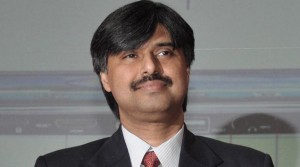“Today, India has a critical mass of people who are online and have access to electronic instruments of payments. With Digital India, we have the right platform to move from a cash dominated economy to a less cash economy in medium term & a cash less in the long run. RBI and Govt have been very pro-active in facilitating innovations in electronic payments. Indian consumers have often surprised the conventional wisdom when it comes to adopting new ways of doing things – telecom, internet. If right incentives on both supply (Merchants) and demand (Customers) side are announced in this budget session, it would push the quick and wide adoption of electronic payments.
With the launch of Startup India, we are very confident about Govt’s focus and due importance to Startups. We would like to get more details on operationalization of Startup India. It is fairly certain to say India could soon emerge as one of the top three Startup hubs in the world given its natural inclination for Enterprise and support of establishment,” Shailaz Nag, Co-founder & COO, PayU India
Spokesperson – Mr.Sandeep Aggarwal, Founder and CEO – Droom
Internet is an enabler of growth and visitor  Highways should be simulated, similar to our rail and road infrastructure. Allocation of budgetfor creating a robust network of Internet connectivity across India is elementary. In the union budget we wish to see avenues of public private participation with telecom Operators. The same is the key to Internet growth; unless our telecom providers do not fuel our masses with bandwidth and affordability, Digital India would be a distant dream.
Highways should be simulated, similar to our rail and road infrastructure. Allocation of budgetfor creating a robust network of Internet connectivity across India is elementary. In the union budget we wish to see avenues of public private participation with telecom Operators. The same is the key to Internet growth; unless our telecom providers do not fuel our masses with bandwidth and affordability, Digital India would be a distant dream.
Subsidy on smartphones is my next expectation, buying a smartphone is much easier than buying a desktop / laptop. The current Tier 2 and 3 cities and rural India thrives on these devices and smartphone reach will only make them stronger and smarter. It may give rise to evolution of many new Enterprises. Lastly, GST would be a game changing reform, it will enable a country wide, single market with reduced transaction costs for businesses and controlled economic volatility.
Spokesperson – Mr. Mohit Mittal, Founder & CEO – Voodoo
Mohit, who has been successfully starting up  his businesses since his college days at IIT Madras is very positive and believes in promising changes in the startup environment from this budget. He says, “After the ‘Startup India’ initiative from the prime minister, new startup founders & entrepreneurs are holding their hopes and expectations high from the upcoming entrepreneur-friendly tax regime at this Union budget.”
his businesses since his college days at IIT Madras is very positive and believes in promising changes in the startup environment from this budget. He says, “After the ‘Startup India’ initiative from the prime minister, new startup founders & entrepreneurs are holding their hopes and expectations high from the upcoming entrepreneur-friendly tax regime at this Union budget.”
Talking about the taxes and growth structure in startups, he also adds, “exempting these startups from few direct and indirect taxes will also foster their growth and ensure a propitious ecosystem for them.”
Mr. Soumitra Gupta, Founder & CEO, Togofogo
Few expectations from the budget are clarity on FDI in e- commerce and simplification of the indirect tax regime. Reduce state wise differences in indirect taxation to simplify pan India operations for many companies especially startups. Either GST comes soon or taxation improves. Also, reduction of import duties with an option to allow businesses to ‘Make in India’ will be a welcome move. Subsidies at ground level will make Entrepreneurs feel protected & safe. Digital literacy and mobile internet penetration intier 2, tier 3 cities are other areas onto which we would like to see the Union Budget’s focus.
commerce and simplification of the indirect tax regime. Reduce state wise differences in indirect taxation to simplify pan India operations for many companies especially startups. Either GST comes soon or taxation improves. Also, reduction of import duties with an option to allow businesses to ‘Make in India’ will be a welcome move. Subsidies at ground level will make Entrepreneurs feel protected & safe. Digital literacy and mobile internet penetration intier 2, tier 3 cities are other areas onto which we would like to see the Union Budget’s focus.
Mr. Raghav Bahl, Founder, The Quint
We need only two things: one, more bandwidth/spectrum;  and two, a level playing field on taxes. Why should a rich, old, viable, lucrative medium like print advertising be exempt from service tax, while the fledgling, entrepreneurial, technology driven Internet advertising is skimmed?
and two, a level playing field on taxes. Why should a rich, old, viable, lucrative medium like print advertising be exempt from service tax, while the fledgling, entrepreneurial, technology driven Internet advertising is skimmed?
Mr. Manavjeet Singh , Founder and CEO, Rubique
Startup India action plan has showcased some signs of  encouragement for startup ecosystem and from this year budget too we expect similar positive support from the government. For any startup ease of starting a business is crucial. We need a supportive environment on compliance front to reduce the paperwork so the founder can execute his idea faster. Also tax holidays/exemption on service tax in initial years would help startups to deploy their funds effectively to make their foundation stronger. Also there should be smooth process of deployment of funds government has reserved for startup. This would definitely encourage the promising entrepreneur community in India.
encouragement for startup ecosystem and from this year budget too we expect similar positive support from the government. For any startup ease of starting a business is crucial. We need a supportive environment on compliance front to reduce the paperwork so the founder can execute his idea faster. Also tax holidays/exemption on service tax in initial years would help startups to deploy their funds effectively to make their foundation stronger. Also there should be smooth process of deployment of funds government has reserved for startup. This would definitely encourage the promising entrepreneur community in India.
Quote on behalf of Mr Ranjit Punja, CEO & Co-founder, CreditMantri
Following the Jan Dhan Yojana and the new payment bank licenses, it is only logical that we are likely to see a large  outlay in the Budget to build rural connectivity so as to enable increased digital penetration within unserved segments of the population. Building brick and mortar bank branches will take too long and it is imperative that access to a bank and the ability to send and receive Mondaywill be digital. We are also likely to see a reduction in excise duty on hardware required to promote a Digital India.
outlay in the Budget to build rural connectivity so as to enable increased digital penetration within unserved segments of the population. Building brick and mortar bank branches will take too long and it is imperative that access to a bank and the ability to send and receive Mondaywill be digital. We are also likely to see a reduction in excise duty on hardware required to promote a Digital India.
Quote on Behalf of Mr Neeraj Jain, CEO & Co-founder, Zopper
“The govt should discuss special plans and incentives  for offline retailers to compete with FDI funded online retailers. The offline retail is largest employment generator in the country and govt should bring about major incentives for this sector. Also, the budget should have specific measures to increase digital connectivity across the country.”
for offline retailers to compete with FDI funded online retailers. The offline retail is largest employment generator in the country and govt should bring about major incentives for this sector. Also, the budget should have specific measures to increase digital connectivity across the country.”
Quote on behalf of Mr HarshVardhan Lunia, CEO & Co-founder, Lendingkart
“The recently launched ‘Startup India’ initiative has stirred-up optimism amongst entrepreneurs.  However, there still subsists a need to exempt startups from direct and indirect taxes, with MAT (Minimum Alternate Tax) being the key one as it will help entrepreneurs reduce burden and cash outflows. While tax holiday certainly brings a sigh of relief, it may not be beneficial for many technology startups who do not make profits in initial years of their commencement. Therefore, such startups should be able to claim benefits of tax holiday of 3 years within a period of minimum 5 years from inception. Furthermore, since service tax liability proves onerous for entrepreneurs, there is a need to reconsider that as well. Another critical aspect is the elimination of long-term capital gain taxes for investors in unlisted startups so that they are able to attract more funding from angel investors. Considering the pace at which tech startups are growing in India, it has become even more crucial for us to push the ‘Digital India’ initiative. Currently, the IT penetration level in India is at 19 percent which is quite low as compared to other developed and developing countries. For us to realize the dream of a digitally connected country, it is imperative to have a robust digital infrastructure in place and encourage mobile internet usage amongst citizens as much as possible. Moreover, tax relief for buyers on purchase of computers and mobile phones will also enhance internet penetration in the country.”
However, there still subsists a need to exempt startups from direct and indirect taxes, with MAT (Minimum Alternate Tax) being the key one as it will help entrepreneurs reduce burden and cash outflows. While tax holiday certainly brings a sigh of relief, it may not be beneficial for many technology startups who do not make profits in initial years of their commencement. Therefore, such startups should be able to claim benefits of tax holiday of 3 years within a period of minimum 5 years from inception. Furthermore, since service tax liability proves onerous for entrepreneurs, there is a need to reconsider that as well. Another critical aspect is the elimination of long-term capital gain taxes for investors in unlisted startups so that they are able to attract more funding from angel investors. Considering the pace at which tech startups are growing in India, it has become even more crucial for us to push the ‘Digital India’ initiative. Currently, the IT penetration level in India is at 19 percent which is quite low as compared to other developed and developing countries. For us to realize the dream of a digitally connected country, it is imperative to have a robust digital infrastructure in place and encourage mobile internet usage amongst citizens as much as possible. Moreover, tax relief for buyers on purchase of computers and mobile phones will also enhance internet penetration in the country.”
Rajeev Karwal, Founder and CEO, Milagrow
I feel that at this point the impact of Digital India or Make  in India is only in the media. It is not just about removing red tape and corruption; the real situation on ground hasn’t changed much. The global outlook is also gloomy at present, as the industry is saddled with high debt. The stock market and regular investment options are not giving good returns. Unemployment and hidden underemployed is at an all-time high.
in India is only in the media. It is not just about removing red tape and corruption; the real situation on ground hasn’t changed much. The global outlook is also gloomy at present, as the industry is saddled with high debt. The stock market and regular investment options are not giving good returns. Unemployment and hidden underemployed is at an all-time high.
In such a strained business environment, the 4th industrial revolution in the form of robotics can help revitalize the flagging global market. I feel the Government must provide long-term fiscal incentives to attract global investment in robotics to India. The infrastructure of high speed web has to be built at the cheapest cost so that smart IOT appliances can perform to their true potential and solve our everyday issues. Even the ecosystem of chips and other important components has to be built to match the global standards. This will ensure that world scale manufacturing of finished products moves to India in the longer term. Moreover, a move must be made to steamroll the GST bill through at any cost, as it will lead to a greater ease of doing business. Even if the bill is passed today, its impact on businesses will only be seen after 12 to 18 months. Therefore, the Government must take up the matter of the GST bill on an urgent basis. The local direct and indirect taxes account for 30 to 40 percent currently; as such, a move will have to be made to reduce these taxes to half in order to support businesses within the country. The 4th industrial revolution is right around the corner in form of robotics. Let us have a national plan to capitalize fully on it.
Mr Anish Williams, CEO and Co-Founder of TranServ
The Union Budget is expected to keep up the good work  set in motion by the ‘Start Up India, Stand Up India’ initiative. With the fintech industry emerging as a big market segment for the Indian economy, the Government must look to consolidate the alternate banking and financial transactional spacein the upcoming budget as it looks to give digital commerce a big boost. As such, we are expecting a relaxation of norms and increased ease of doing business for digital wallets owing to the disruptive impact and ubiquitous accessibility that they offer. An increase in the limit of capital that wallets can handle will definitely add to the user convenience and fuel the growth of the industry.We are also looking forward to a deeper, more integrated service provision in association with nationalised and private banks to further the cause of financial inclusions.
set in motion by the ‘Start Up India, Stand Up India’ initiative. With the fintech industry emerging as a big market segment for the Indian economy, the Government must look to consolidate the alternate banking and financial transactional spacein the upcoming budget as it looks to give digital commerce a big boost. As such, we are expecting a relaxation of norms and increased ease of doing business for digital wallets owing to the disruptive impact and ubiquitous accessibility that they offer. An increase in the limit of capital that wallets can handle will definitely add to the user convenience and fuel the growth of the industry.We are also looking forward to a deeper, more integrated service provision in association with nationalised and private banks to further the cause of financial inclusions.
Uday Reddy, CEO & Founder of YuppTV
Road map to GST in the upcoming budget will go a long  way in both increasing the ease of doing business and reducing the cost of doing business. Further rationalisation of local taxes into GST will also pave the way for incubation and higher growth of digital businesses. Fiscal incentives for broadband infrastructure penetration and consolidation of broadband play is required to usher in digital revolution and to bring India on par with developed countries.
way in both increasing the ease of doing business and reducing the cost of doing business. Further rationalisation of local taxes into GST will also pave the way for incubation and higher growth of digital businesses. Fiscal incentives for broadband infrastructure penetration and consolidation of broadband play is required to usher in digital revolution and to bring India on par with developed countries.
Satish Kataria, Managing Director, Catapooolt “With the year starting on Hon’ble PM’s Start Up India Movement announcement and various proposed measures – this year’s budget could be revolutionary milestone towards strengthening India’s start-up movement – ofcourse provided that the proposed measures are implemented with right spirit and right fine print! Further, we are aware of the Special Committee that is being constituted under the Ministry of Finance to look at various innovations to ease up start up funding – which we believe is also looking at domain of crowdfunding. We are hopeful, that similar to other developed nations acknowledging and opening up crowdfunding, India too would look at this medium positively – as it can well sync up with several newly proposed measures such as proposed INR 10,000 Crore start-up fund (where a possible plug in with crowdfunding can bring true elements of market validation of innovative ideas as well as engage larger communities to come on board) as well as National Start up Hub (where it can connect early stage start ups with other enablers). In short, we expect and hope that this budget would place a new milestone towards acknowledging and supporting the role of entrepreneurs in shaping the next India.
Abhesh Verma, COO, nexGTV
The $1.5 billion start-up fund announced in ‘Startup  India 2016′ reflects the Government’s faith in digital and startup ventures. It’ll be interesting to see the budget address critical infrastructural bottlenecks to improve the fund’s channelization and accessibility in order to foster increased Internet penetration in Tier 2 cities and beyond, which will bring forth the next wave of digital entrepreneurs as well as consumers and help meet the Government’s vision for Startup Indian & Digital India.
India 2016′ reflects the Government’s faith in digital and startup ventures. It’ll be interesting to see the budget address critical infrastructural bottlenecks to improve the fund’s channelization and accessibility in order to foster increased Internet penetration in Tier 2 cities and beyond, which will bring forth the next wave of digital entrepreneurs as well as consumers and help meet the Government’s vision for Startup Indian & Digital India.







